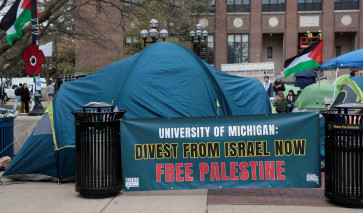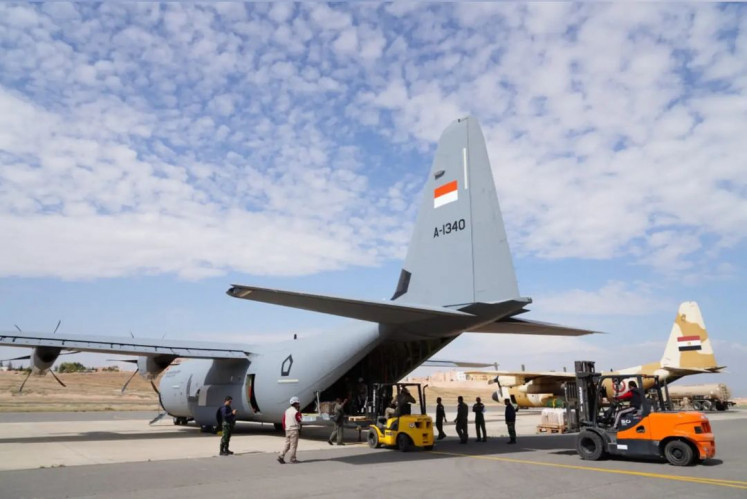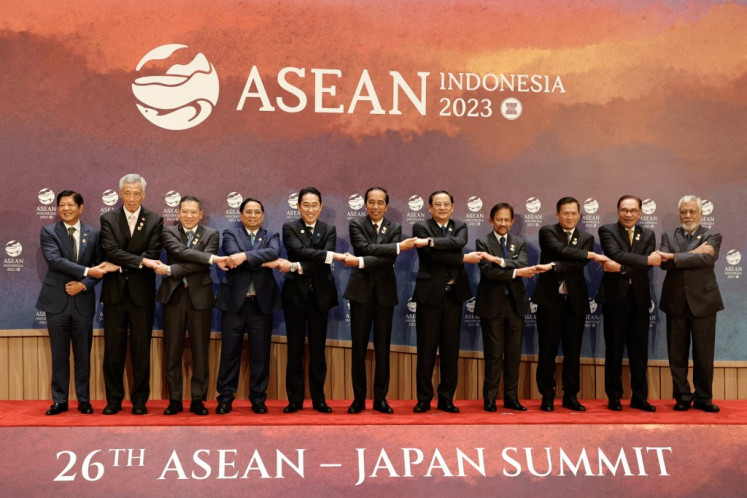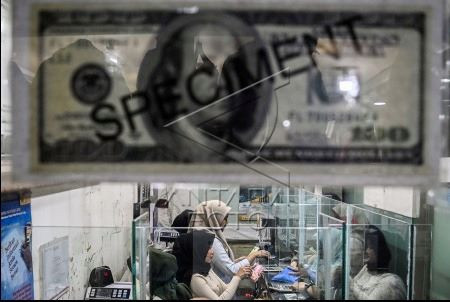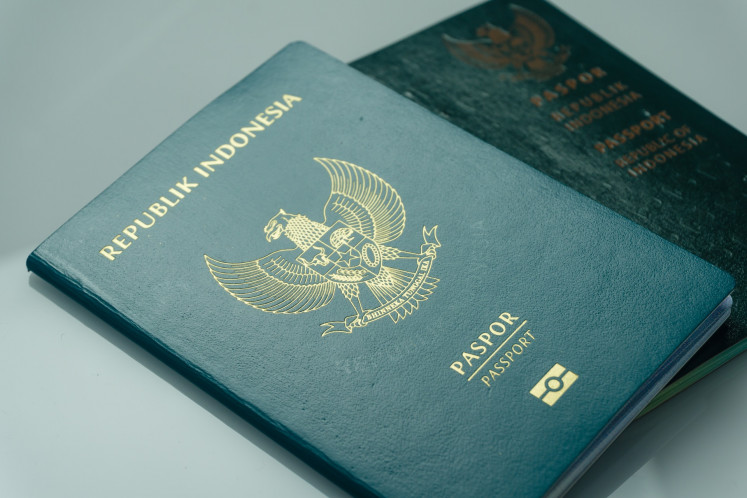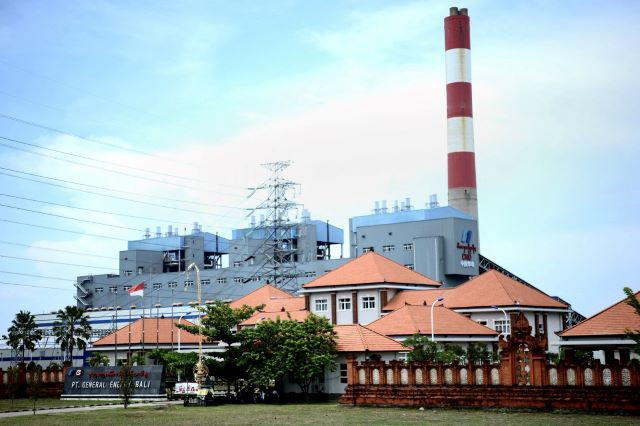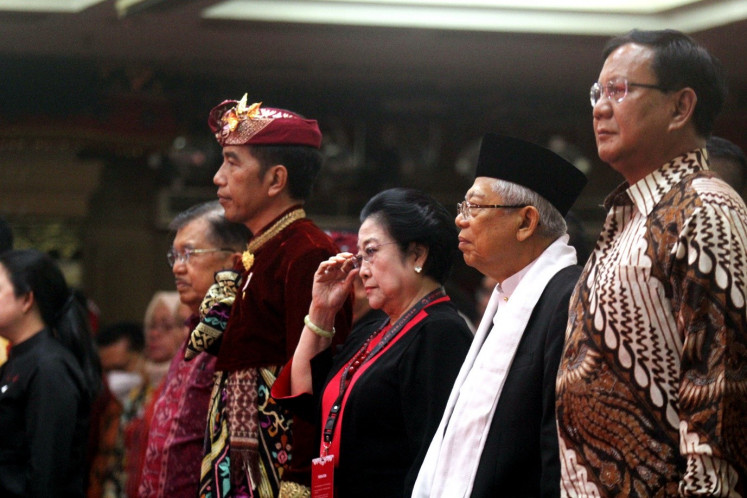Analysis: Tale of two Islam-based parties in Team Anies
Change Size
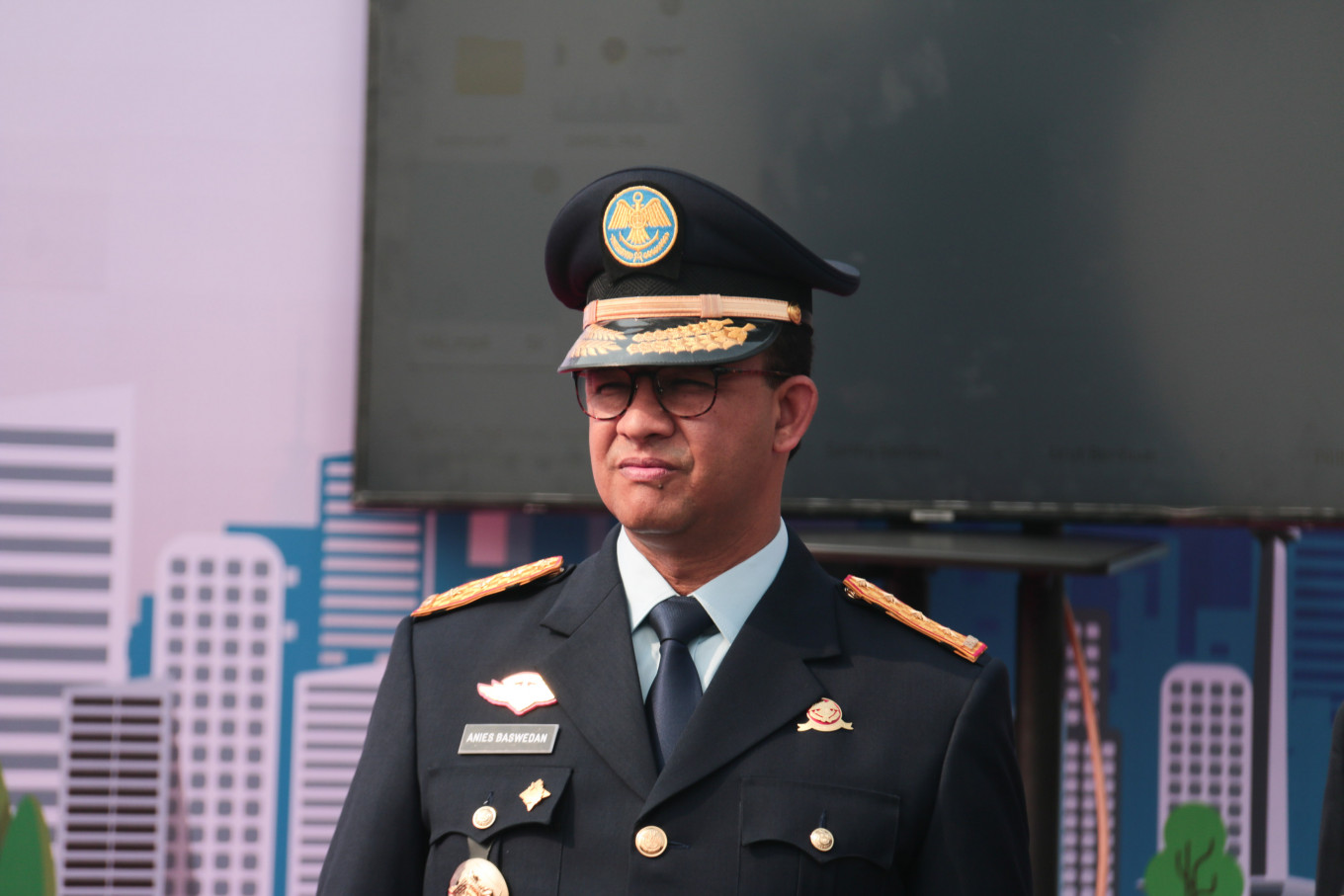 DKI Jakarta Governor Anies Baswedan became the inspector of the ceremony at Monas, Central Jakarta, Tuesday (09/17/19). The ceremony was held in commemoration of National Transportation Day. (JP/Rafaela Chandra/Adi)
DKI Jakarta Governor Anies Baswedan became the inspector of the ceremony at Monas, Central Jakarta, Tuesday (09/17/19). The ceremony was held in commemoration of National Transportation Day. (JP/Rafaela Chandra/Adi)

Two Islam-based parties could not be more different than the National Mandate Party (PKB) and the Prosperous Justice Party (PKS), yet they have joined hands in nominating former Jakarta governor Anies Baswedan as their presidential candidate for next year’s election. Should Anies goes on to win, the PKB and PKS will be fighting it out in determining the extent to which Islam is going to be a factor in influencing the policies of the new government.
Both parties were founded in 1998 immediately after Indonesia ushered in democracy following the downfall of strongman Soeharto. The PKS has since become the leading political party in mainstreaming Islam into the country’s political agenda, and many of its supporters aspire to turn Indonesia into an Islamic state and for sharia to become the law of the land. The PKB, founded by Nahdlatul Ulama (NU), the country’s largest Islamic mass organization, on the other hand is bent on keeping Indonesia pluralist and inclusive, putting it at odds often with the PKS and other parties with an Islamist agenda.
The PKB will likely be the bigger partner than than PKS in a future coalition government since its chairman Muhaimin Iskandar has secured for himself the slot as Anies’ running mate. In fact, Muhaimin made his nomination for vice president a condition for the PKB joining Team Anies. In past elections, the PKB has dominated in East Java, the second-largest constituency where Anies is perceived to be weak. But whether the PKB will deliver East Java on election day on Feb. 14, 2024 is another question, given the ongoing feuds within the PKB, and between the PKB and NU.
The PKS had also earlier vied for the vice-presidential slot and was among the first parties to endorse Anies’ nomination, along with the NasDem Party and the Democratic Party. When Anies announced Muhaimin as the running mate this month, the Democratic Party quit the coalition in haste, disappointed that its chair Agus Harimurti Yudhoyono did not get the slot.
The PKS knew better than to push its own nominee in the absence of any viable candidate, but It took several days before the party endorsed the Anies-Muhaimin ticket. When it announced its decision at a meeting on Sep. 16, attended by both candidates, the pleasantries exchanged between Muhaimin and PKS president Ahmad Syaikhu concealed the major differences in how they each see the role of Islam in politics.
Neither the PKS nor the PKB are ever in the top-three largest parties, which usually go to nationalist-secular parties, but they have taken part in coalition governments to influence policies. In the 2019 legislative elections, the PKB came fourth with 9.69 percent of the total vote, while the PKS came sixth with 8.21 percent of the vote, enough to make impacts on some policies, either in the coalition government or in opposition in the House of Representatives.

The PKB has been part of both coalition governments of President Joko “Jokowi” Widodo, in 2014-2019 and from 2019 to the present, and was a member of the coalition government under then president Susilo Bambang Yudhoyono in 2009-2014. The PKS served in both coalition governments under Yudhoyono in 2004-2009 and 2009-2014.
What’s more
The new collaboration between the PKS and PKB is not a novelty as they were in the same coalition government in 2009-2014, but they still need to work hard to overcome their political differences.
Much depends on how president Anies, assuming he wins the election, handles the rivalry between the two Islam-based but ideologically opposite parties.
The PKB and NU got a lot of concessions in the current Jokowi government, represented not only by vice-president Ma’ruf Amin, but also in securing a number of cabinet seats, including the religious affairs and manpower portfolios. In return, they help shield Jokowi from attacks by conservative Muslim groups.
The PKS has played quite an effective role in opposition, fighting its battles in the House. The party is credited for the conservative articles in the new Criminal Code endorsed in January, including those pertaining to extra-marital sex. When it was part of the Yudhoyono coalition government, it pushed for the strict Pornography Law.
The PKS began as an Islamic propagation movement in various colleges in the 1980s, drawing its inspiration from the Egyptian-based Muslim Brotherhood. It turned into a political party in 1998 and has since expanded its support base, moving beyond just colleges and student networks to local mosques.
In the new collaboration between the PKS and PKB for the 2024 elections, they need to convince their respective supporters at the grassroots where rivalry is even more tense. NU leaders have accused the PKS of taking over control of many mosques that had been in their hands, an accusation that Muhammadiyah, another large Islamic mass organization, has also made.
The late Abdurrahman Wahid, president in 1999-2001 and former PKB chair, once described the PKS as an “enemy under the blanket” saying that the party, in cahoots with other organizations, is working within the democratic political system to turn Indonesia into an Islamic state.
This concern or suspicion remains today even though the PKS has since written Pancasila as the party’s ideological guidance into its statutes, in compliance with the law on political parties. It has openly denounced its aspirations to turn Indonesia into an Islamic state and to push for sharia. Among its grassroots supporters, however, those aspirations remain alive.
Following last week’s PKS endorsement of the Anies-Muhaimin ticket, leaders of both the PKS and PKB have appealed to their supporters to put aside their differences in the run-up to next year’s election to ensure an Anies victory.
This is the easiest part. The harder part, and the real battle between the two, is if Anies goes on to win. This may be a moot point for now, since Anies is trailing in all opinion surveys behind the two other presumptive candidates, Defense Minister Prabowo Subianto and former Central Java governor Ganjar Pranowo.
What we’ve heard
The Prosperous Justice Party (PKS) has finally endorsed the Anies Baswedan and Muhaimin Iskandar duo as presidential and vice-presidential candidates to strengthen the Coalition for Change which now also comprises the NasDem Party and the National Awakening Party (PKB).
Sources close to Anies said the former Jakarta governor had made efforts to maintain PKS's support, even though an alliance between NasDem and the PKB is already enough to nominate him and Muhaimin. According to these sources, based on several opinion polls, a significant portion of PKS voters have expressed support for Anies. Therefore, Anies continues to attend events organized by the PKS, such as fun walks in Tasikmalaya, Deli Serdang, Palembang, and Depok. "This is a strategy to ensure that PKS remains on board," said one of the sources.
A daunting challenge for Anies is to address the differing political platforms between PKB and PKS, which are characterized by their moderate and conservative traits of Islam respectively. However, the source said the difference does not matter to the coalition, even among grassroots supporters of the two parties.
The source said there are PKS leaders in certain areas who are also Islamic scholars affiliated with Nahdlatul Ulama (NU), the biggest voter base for PKB. PKS members from this NU group will serve as a bridge for communication at the grassroots level.
Internal sources from PKS said the party has recruited NU-affiliated scholars as legislative candidates. Additionally, PKS officials at the local level have been reaching out to organizations and groups closely associated with the NU community. They have organized joint activities, including religious gatherings.
Disclaimer
This content is provided by Tenggara Strategics in collaboration with The Jakarta Post to serve the latest comprehensive and reliable analysis on Indonesia’s political and business landscape. Access the latest edition of Tenggara Backgrounder to read the articles listed below:
Politics
- Bringing forward regional head elections, in whose interest?
- Coalitions must soon finalize presidential and VP nominees
- Ministers free to campaign for elections, terms and conditions apply
Business and Economy
- After investor departure, Balikpapan refinery suffers cost overrun, delays
- J&T’s upcoming IPO faces legal obstacle
- Kresna Group founder investigation reveals problems in subsidiaries
- BI SRBI renders short-term government bonds unattractive




